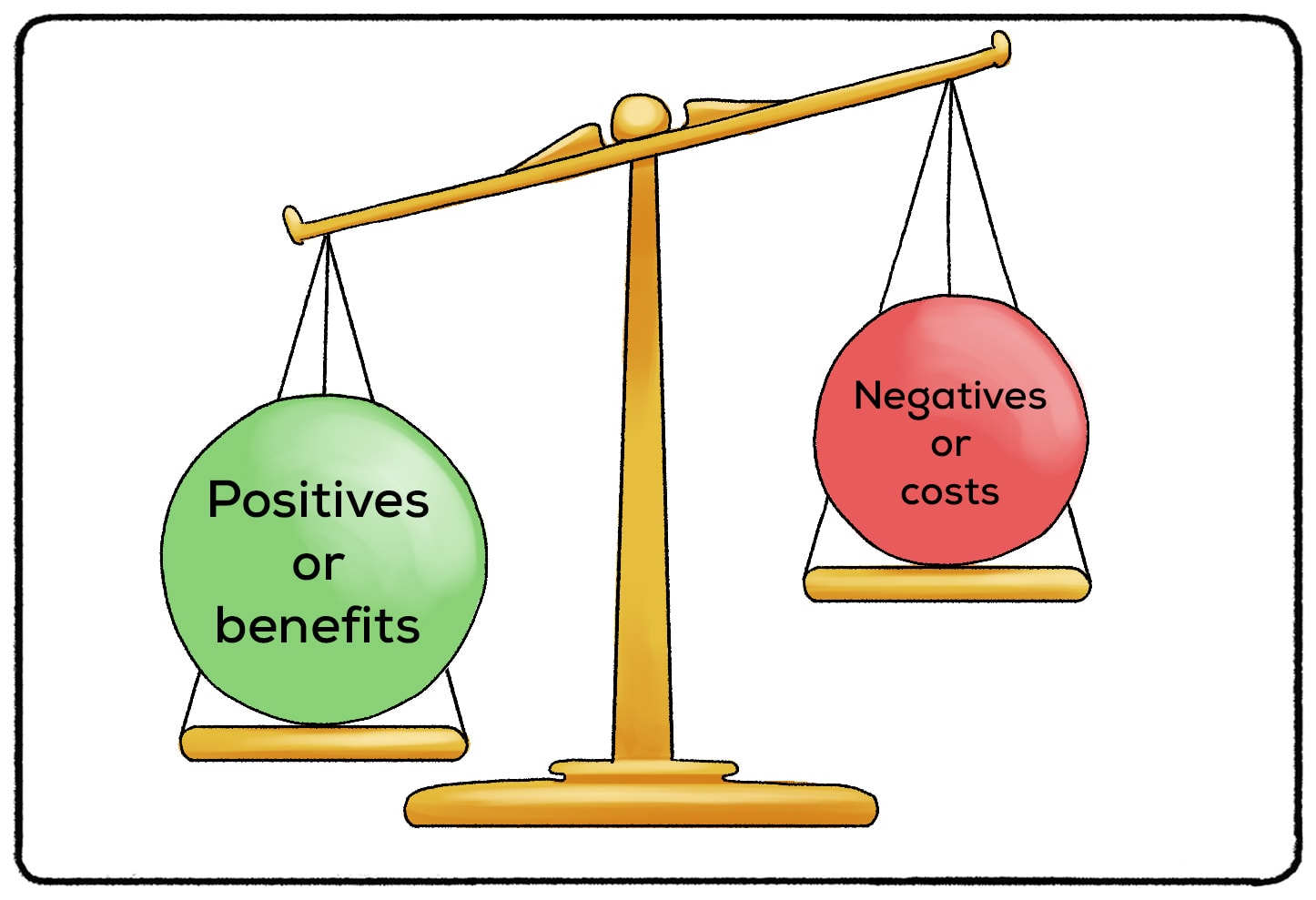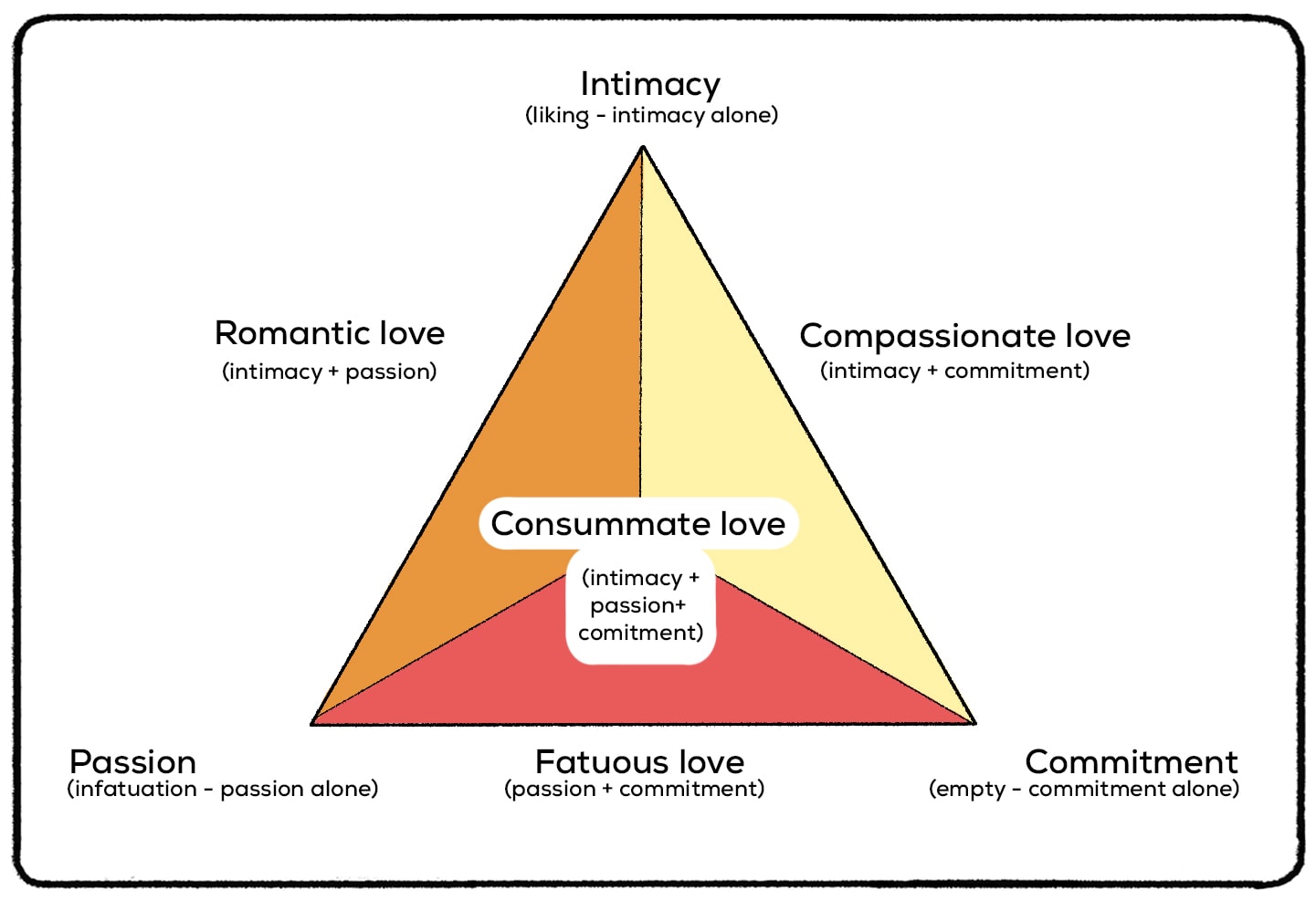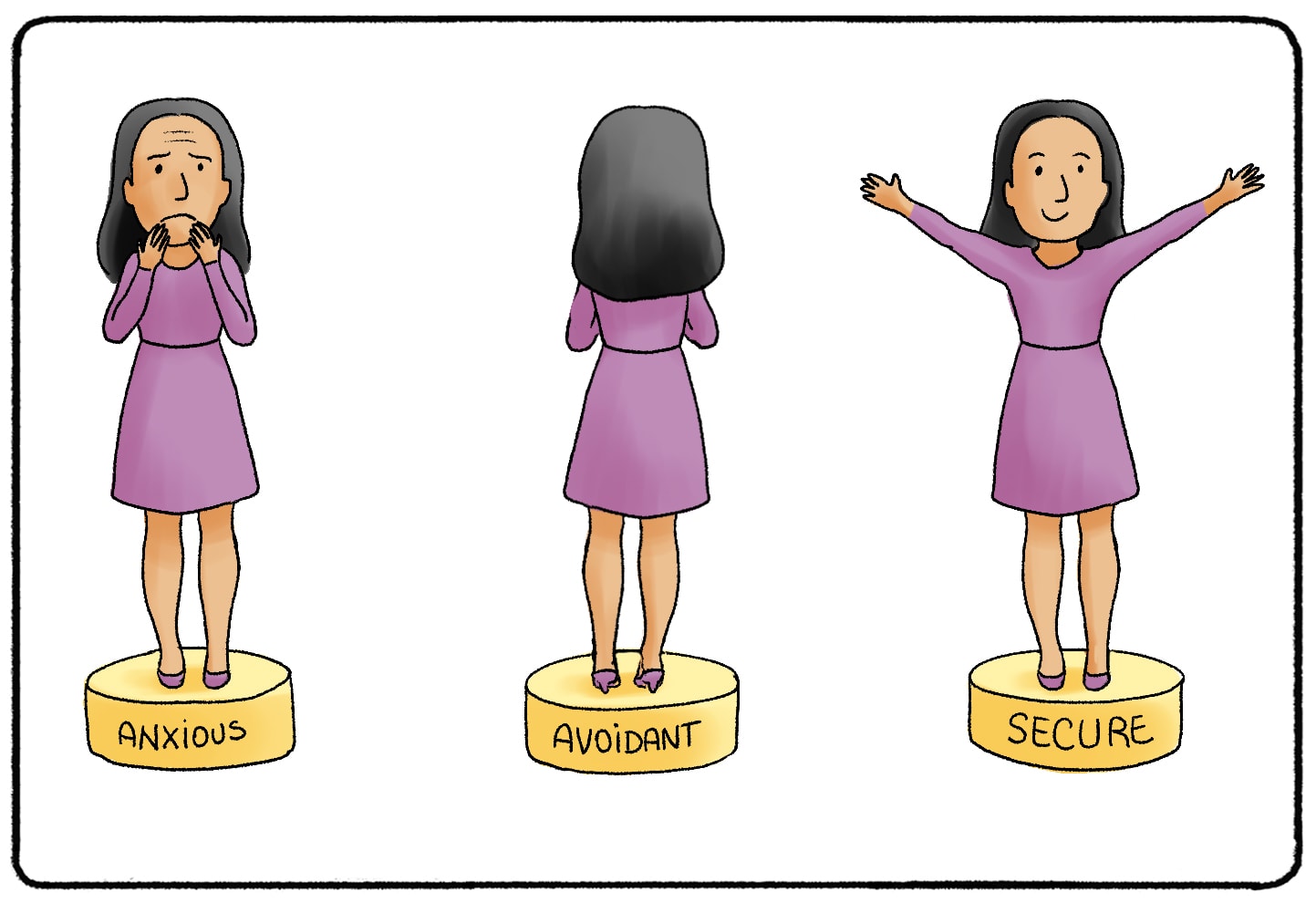What makes a relationship work? How can you guarantee satisfaction in a relationship? These are questions that have been plaguing psychologists, therapists, and couples for years. With divorce rates reportedly rising and falling in the past few decades, it’s hard to pinpoint exactly what can lead couples to and away from the edge. Psychologists have created many theories of relationship satisfaction to try to answer the question.
But here’s the thing about relationship satisfaction: psychologists are still figuring it out, too.
There are a handful of theories about relationships that may explain why some couples continue to stay in love for decades and why others fizzle out. On this page, we’ll examine a few of them and discuss how they can be applied to everyday relationships. Whether you are single, dating, or married, this page may shine a light on what it takes to stay satisfied in your relationships.
Soulmate vs. Work-it-Out Theories
When many people think of “relationship satisfaction,” their mind goes to romantic relationships. Let’s start here. What makes a relationship between spouses, life partners, or co-parents work?
The answer isn’t so simple - and some of it depends on how the individual views relationships and satisfaction. Studies have been done to test two different theories of relationships: a “soulmate theory” vs. a “work-it-out” theory. Do you have to find the right person to have a satisfying relationship, or do you just need to be committed to working it out?

The study revealed that while the soulmate theory appeared to be safer in the short run, integrating the work-it-out theory into longer relationships was more likely to guarantee the safety of both partners. While this study did not look specifically at relationship satisfaction, it reveals the complexity of relationships that may last for 5, 10, 20, or 50 years. Is finding your “soulmate” enough to last a lifetime? Most likely, no. You may still seek out a great partner, but if you are not working together to commit and deepen your relationship, you’re heading for trouble.
Factors That Lead to Relationship Satisfaction
When you look at the overall research on marital or romantic relationships, it’s hard to find a straight answer on what leads to satisfaction. Many factors come into play, and not one individual factor can be directly linked to satisfaction. Psychologists say that along the way, researchers may find that marital satisfaction is linked to constructs like:
- Communication
- Commitment
- Quality time
- Dominance
Navigating these different constructs with your partner may reveal what it takes for both of you to feel satisfied in your relationship. Even when you look at communication, commitment, quality time, and dominance, you may see a lot of avenues to explore and a lot of different ways to approach your marital (or dating) relationship. Exploring these ideas is the first step that will allow you to “work it out.”
Triangular Theory of Love

Some psychologists have taken just two or three constructs to form theories about what a relationship needs to be satisfying or loving. Sternberg’s Triangular Theory of Love, for example, sees relationships through the dynamics of three different elements: intimacy, passion, and commitment. Different combinations of these three elements result in different types of love, from liking to infatuation to fatuous love. When a relationship contains all three elements, consummate love is felt between both parties.
Taking a look at this theory with a partner can be a jumping-off point for discussions about how satisfied you may feel in your relationship and where you need to focus more of your energy.
Attachment Theory

Other theories may not directly explain relationship satisfaction, but they provide insight into how people work within relationships and what they need from their partner. Take Attachment Theory. Attachment Theory defines attachment as the connection felt by two people, be it romantic partners, friends, or a parent and a child. Psychologists John Bowlby and Mary Ainsworth’s work on this theory have identified different “styles” of attachment and suggested that the attachment styles developed as children may influence attachment styles in adult, romantic relationships.
Other Connections Between Childhood and Adult Relationships
I know this sounds strange, but it’s a recurring theme that you may find in the work of many psychologists and modern-day relationship therapists. It’s not just Freud who made a connection between parental and romantic relationships. Imago Relationship Therapy, for example, is centered around the theory that childhood experiences shape what people look for in their adult relationships. If they found themselves abandoned as a child, they might seek out a partner who is constantly by their side. If their parents didn’t listen to them, they may seek out a partner who will always listen to them.
We don’t have time to dive deep into the details of attachment theory and therapeutic approaches that make the connection between childhood and adult relationships, but it’s important to note that these theories are out there. Examining the experiences you had as a child may be key in understanding what you need to feel satisfied in your adult relationships.
What happens when we don't experience intimate relationships? According to psychologists like Joan and Erik Erikson, we may develop feelings of isolation and loneliness. "Intimacy vs. isolation" is the sixth stage of Erikson's Stages of Psychosocial Development. The theory explains eight stages in which we face different crises. In infancy, for example, we face a crisis of trust vs. mistrust. By adolescence, we may go through an "identity crisis."
Erikson believed that between the ages of 20-40, we experience a crisis of intimacy vs isolation. If we can form satisfying relationships and experience intimacy with others, we can move through this crisis successfully. If not, we may feel isolated. Our success in this stage often depends on how we've moved through previous stages. Someone who trusts others, for example, is more likely to form satisfying relationships. A person who is confident about their identity is also likely to be in satisfying relationships. If you are not in a satisfying relationship currently, you may want to look back in life and see where you might holding onto unresolved feelings.
Social Exchange Theory
Let’s zoom out even further. The key to feeling satisfaction in your relationship may be found in understanding how humans approach all relationships. One of the most well-known theories about social relationships, romantic or otherwise, is the Social Exchange Theory.
The Social Exchange Theory suggests that all relationships are built out of exchanging social behaviors. The goal of these behaviors is to maximize benefits and minimize costs, as if you were exchanging goods or services. Relationships stay strong between two people when they both believe the benefits of the relationship to outweigh the costs. When the costs start to pile up, people back away or look for a relationship that is “less costly.”
One thing to note here is that psychologists believe that in the early days of a relationship, romantic or otherwise, people tend to ignore this exchange. They do not evaluate the costs or benefits as much because they are excited to be pursuing this new type of exchange.
Applying Social Exchange Theory to Relationship Satisfaction
This theory can be applied to friendships or relationships between colleagues, but it may also apply to romantic relationships and satisfaction. Feeling satisfied is clearly a benefit of a romantic relationship, but it comes at a cost. These costs may be “working it out,” attending therapy, or making sacrifices in order to stay committed. When a person cannot see the satisfaction outweighing the costs anymore, they may decide to walk away.
How do you overcome this in a relationship? This is where communication may come into play. What feels “costly” for your partner? What is “costly” for you? Just like two business partners may negotiate on responsibilities or deals, adjusting the cost that each person puts into the relationship may make the satisfaction they get out of it more valuable. Again, understanding what makes your partner feel “satisfied” is also important here.
Resources for Learning More About Relationship Satisfaction
These are not the only theories on relationship satisfaction. Psychologists are working every day to figure out how people determine their satisfaction and how that determination affects what they put into a relationship. For example, in 2017 psychologists proposed the idea that “people base their commitment to a relationship more on their expected future satisfaction with the relationship than on their current satisfaction with that relationship.” As psychologists continue to explore these ideas, we may learn more about what it takes to choose, start, and maintain a relationship that leads to maximum satisfaction.
Search for Support Within Your Community
We are all trying to figure out what makes a relationship satisfying, for ourselves and others. Don't be afraid to get the opinions of friends, family, and other people!
Looking for Advice Online
If you aren't close with people who give good dating advice, you can find support online. Take a look at this conversation on the EverythingScience subreddit. The original post is titled, "Researchers have found that empathizing with a partner's negative emotions improved relationship satisfaction - but empathizing with positive relationships was five times stronger." The post includes a link to an article about a study conducted by psychologists.
One of the top comments says, "I would like to hear some examples of what kinds of positive emotions have been empathized with, and what the reactions were immediately, and over time. Asking for a friend…" The person is clearly looking for advice, and they get it from the Reddit community!
One of the responses says, "Well as an example, let’s say that you come home excited to tell your partner that you got a huge promotion and a big raise and that your emotional arousal level is on a 7 out of 10. You are happy, excited, and grinning from ear to ear as you share with your partner all of your good news as a result of months of hard work for you.
Your partner doesn’t get excited. In fact they are just sitting on the couch chilled out and they don’t really give much of a visual reaction beyond a shoulder shrug and maybe a, 'that’s nice, what are you cooking for dinner…?'
Mirroring emotion is def important. It conveys empathy and understanding. An opposite example would be coming home in tears because on the way home you got a phone call from your mother that your dog died but when you tell your partner looking for a sympathetic response, a should rub, a hug, and gentle conversation, your partner is all excited about not having to walk the dog anymore."
This is a great example and shows how to strengthen your relationship with your partner. Advice like this is all over online forums like Reddit or within your friends' minds. Don't be afraid to search for it!
Look Within
For now, the answers mainly lie within yourself. What do you need to feel satisfied? Which childhood experiences may have influenced this? What “costs” and “benefits” tip the scales for you when you are in a relationship?
Books on Relationship Satisfaction
There are many resources that can help you explore these ideas. Books from relationship therapists, like Getting the Love You Want or The Five Love Languages are great places to start. Reaching out to a mental health professional can help you dive deeper into your experiences and what they mean for your behaviors and perspective. Watching videos on the theories mentioned throughout this video, including the Triangular Theory of Love and Attachment Theory, may also provide some key insight into how you experience relationships now and how you can make them more satisfying in the future.



